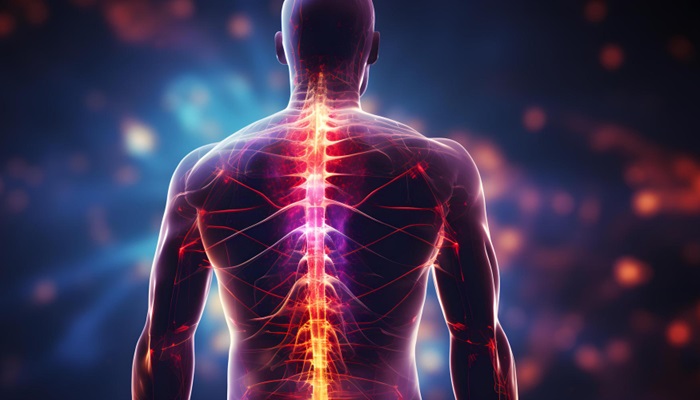When there’s a disturbance in the nerves, several symptoms may be experienced, ranging from numbness, tingling, to pain. Symptoms of neurological diseases vary greatly, depending on the location of the damaged nerves. Therefore, it’s essential to consult a specialist neurologist to obtain accurate diagnosis and treatment.
Contents
Symptoms of Nerve Disorder
Generally, common symptoms of neurological diseases include:
- Tingling or numbness in the feet or hands without clear cause
- Feeling weak and muscles losing strength
- Sudden paralysis on one or several sides of the body
- Persistent headaches
- Lack of coordination
- Sharp stabbing pain in one foot
- Back pain radiating to the toes or other parts of the body
- Vision disturbances such as double vision
- Slurred speech
- Frequent forgetfulness
- Seizures or tremors
- Changes in mental condition
However, not everyone with nerve disorders experiences all of the above symptoms. Typically, a person’s symptoms will be more specific depending on the type of nerve affected.
Click to book consultation with our neurologist

Functionally, nerves can be divided into three types: autonomic nerves, motor nerves, and sensory nerves. When damage occurs to one of these nerves, the resulting symptoms can vary. Symptoms may also be felt in various locations throughout the body.
1. Symptoms of Autonomic Nerve Disorders
Autonomic nerves regulate automatic movements in organs, such as heart rate, body temperature regulation, and digestion. When there’s a disruption in these nerves, symptoms may include:
- Inability to feel chest pain
- Excessive sweating or inability to sweat
- Dizziness
- Dry eyes and mouth
- Constipation
- Urinary disturbances
- Sexual dysfunction
2. Symptoms of Motoric Nerve Disorders
Motoric nerves control body movement and transmit information from the brain to the muscles to enable movement. Symptoms that may occur when these nerves are disrupted include:
- Weakness
- Muscle damage or atrophy
- Twitching
- Paralysis or partial paralysis in certain parts of the body
- Difficulty moving limbs
3. Symptoms of Sensory Nerve Disorders
Sensory nerves, abundant in the skin’s surface, convey information about pain and other sensations such as cold and heat to the brain. Symptoms that may occur with sensory nerve disturbances include:
- Pain in the affected body part
- Numbness
- Increased sensitivity to pain with touch or air
- Tingling
- Certain body parts feeling hot as if burned
Causes of Nerve Disorders
Generally, several factors can cause nerve disorders, including:
- Accidents, injuries, or severe blows, especially to the head and spine
- Diabetes
- Stroke
- Blood flow disturbances or problems with blood vessels
- Congenital abnormalities
- Mental health issues, such as anxiety disorders, depression, or psychosis
- Exposure to toxins such as arsenic or carbon monoxide
- Diseases affecting nerve function, such as Parkinson’s disease, multiple sclerosis, or Alzheimer’s disease
- Brain infections, such as encephalitis and meningitis
- Use of illicit drugs
- Brain tumors
- Organ failure
- Thyroid disorders
Diagnosing Nerve Disorders
1. Electroencephalography (EEG)
EEG is a test used to record electrical activity in the brain by attaching electrodes to the scalp. These electrodes capture the electrical activity and display it as a graph on a computer. Doctors interpret the graph to detect any abnormalities. This test is commonly performed on individuals experiencing seizures to diagnose their cause, such as epilepsy or brain tumors.
2. Electromyography (EMG)
EMG is a test used to observe the functioning of nerves, muscles, and the relationship between nerves and muscles. During this examination, a fine needle is inserted beneath the skin’s surface to detect any issues in suspected muscles. This needle acts as an electrode that records the electrical activity in the muscles. If there’s a disturbance in muscle electrical activity, further examinations can be conducted to determine the cause.
3. Magnetic Resonance Imaging (MRI)
MRI is utilized to examine internal organ conditions in detail. With this examination, doctors can observe the brain’s condition if any abnormalities are present.
4. Computed Tomography (CT) Scan
CT scans provide more detailed images than regular X-rays and are typically used to observe bone, muscle, fat, and other organ conditions. The results of this examination are used to detect disorders in the brain, spine, and other parts of the nervous system.
5. Evoked Potential
This test records electrical activity in the brain while responding to visual, auditory, or tactile stimuli.
6. Neurosonography
This examination assesses blood flow in the body. The results can be used to detect the possibility of a stroke.
7. Lumbar Puncture
This procedure examines the brain and nerves by extracting cerebrospinal fluid samples for further laboratory analysis. The results can be used to detect brain or nerve infections and other disorders.
Click to know estimated price for nerve function test at Mandaya
Treatment Options for Nerve Disorders
Treatment for nerve disorders varies depending on the cause. While many neurological diseases cannot be cured, treatment is still necessary to alleviate symptoms. Treatment for nerve disorders should address the underlying cause, such as:
- Managing blood sugar levels for diabetes-related nerve disorders
- Discontinuing the use of certain medications causing nerve damage
- Physical therapy for injuries to improve nerve function
- Additionally, medication may be prescribed to relieve pain, such as:
- Non-steroidal anti-inflammatory drugs (NSAIDs) like ibuprofen and naproxen
- Antidepressants
- Anticonvulsants
- Steroid injections or local anesthesia for pain relief
- Some natural methods can also help alleviate nerve pain, such as physical therapy, massage, and relaxation techniques.
Neurologist at Mandaya Royal Hospital Puri
When you begin experiencing symptoms of nerve disorders, it’s essential to seek medical attention promptly. Delayed treatment of nerve diseases can lead to severe conditions in no time.
Meet our neurologist:
Don’t hesitate to schedule your appointment with our doctor through Whatsapp Chat, the Book Appointment page, or the Care Dokter app available for download on Google Play and the App Store. In addition to booking appointments, you can also monitor your queue number and access other comprehensive information there.



